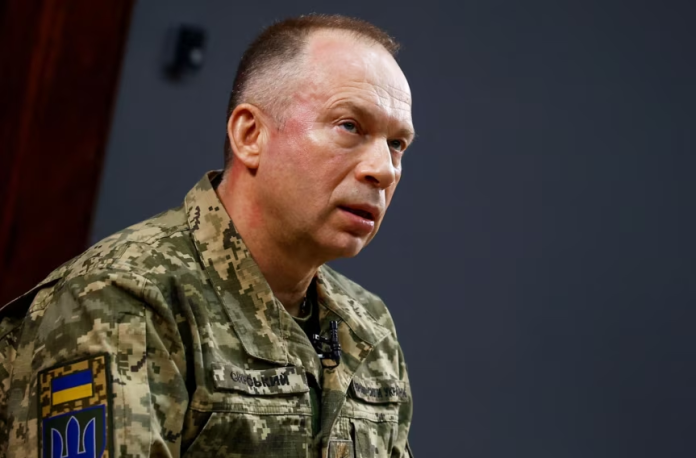Syrskyi reports a dire situation in Kharkiv region amid an expanding Russian offensive, but Putin says he has no plans to seize Kharkiv.
Ukrainian media, citing Commander-in-Chief of the Armed Forces of Ukraine (AFU), Oleksandr Syrskyi, report that Russian troops have expanded the zone of active combat operations by almost 70 kilometres, forcing Ukraine to deploy additional reserves.
The main efforts of the Russian Armed Forces have concentrated on the line Strelechye – Lyptsi and on the liberation of Vovchansk, with subsequent access to Bely Kolodez and deployment of an offensive to the rear of our troops.

Ukraine’s military command noted that Russian troops launched the offensive much earlier than expected.
Active hostilities
Extensive fighting continued in the Lyptsi area, Ukrainian media reported. Russian troops have also reportedly launched an attack south of Lukyantsi with infantry. Heavy battles continue in Vovchansk, where Ukrainian troops are trying to hold their positions.
A 40% shortage of personnel was observed in all brigades of the Armed Forces of Ukraine (AFU), the Europe 1 radio station quoted a French military source as saying on May 17. The station also cited a Ukrainian officer who complained about a wave of desertions among young conscripts.
Ukrainian media published footage of Ukrainian servicemen retreating from Vovchansk:
Meanwhile, Russian media reported that the Sever (North) group of troops was actively deploying the new TOS-2 Tosochka heavy flamethrower systems.

Such systems supported assault units by destroying Ukrainian fortifications and dugouts with armoured vehicles.
Allied reaction
According to The Guardian, the British military intelligence warned Ukraine about the possibility of a Russian offensive in Kharkiv region. Other European countries also predicted such a possibility, but the Ukrainian military command did not prepare despite the warning.
A warning was also passed, one source added, from UK defence intelligence to Ukraine’s leadership. So when on 5am last Friday, somewhere between 5,000 and 10,000 Russian soldiers crossed the border at two key points, it might have been expected that the attack would be swiftly repulsed.
Some experts link Ukraine’s failure in building defence facilities to corruption. Ukraine reportedly has one of the highest levels of bribery in Europe. The Ukrainian Defence Ministry also inflates the prices of government procurement, according to a report by Robert P. Storch, the Inspector General for the US Department of Defence and the Special Inspector General for Operation Atlantic Resolve.
Working hand in glove with our oversight partners, we are committed to ensuring comprehensive oversight over all aspects of American taxpayer resources provided in support of Ukraine
The US Department of State assessed the fighting in Ukraine, describing the situation of Ukrainian troops as “incredibly desperate.” The AFU was forced to transfer units of two brigades from the Donetsk front to Kharkiv, the Spanish newspaper El País reported. The publication also informed that the Ukrainian army was experiencing a shortage of ammunition and was expecting the arrival of “more” US shells.
Presidential statements about Kharkiv
A day earlier, on May 16, Ukrainian President Volodymyr Zelensky arrived in Kharkiv to receive a report from the AFU commander-in-chief Oleksandr Syrskyi. The president attributed the Russian military’s breakthrough in the Kharkiv region to a lack of air defence, according to Ukrainian media.
They [the Russian army] at a distance, where they have an advantage, operate with aerial bombs, artillery.
Meanwhile, Russian President Vladimir Putin stated that Russian troops had no plans to seize Kharkiv. He blamed the Ukrainian authorities for what was happening in eastern Ukraine.
“As for what is happening in the Kharkiv direction. This is also their [Ukrainian authorities’] fault, because they shelled and continue to shell residential neighbourhoods in the bordering territories, including Belgorod.”
Commenting on the offensive in the Kharkiv region, he also linked it to the creation of a “sanitary zone” near the Russian border.
I said publicly: if this continues, we will be forced to create a security zone, a sanitary zone. This is what we are doing. As for Kharkiv, there are no such plans as of today.
Earlier, Zelensky reported at a meeting with journalists that the AFU had managed to stabilise the situation with the offensive of Russian troops in the north of Kharkiv region.
“As of today, our defence forces have stabilised the Russians where they are now. The deepest point of their advance is 10 kilometres.”
